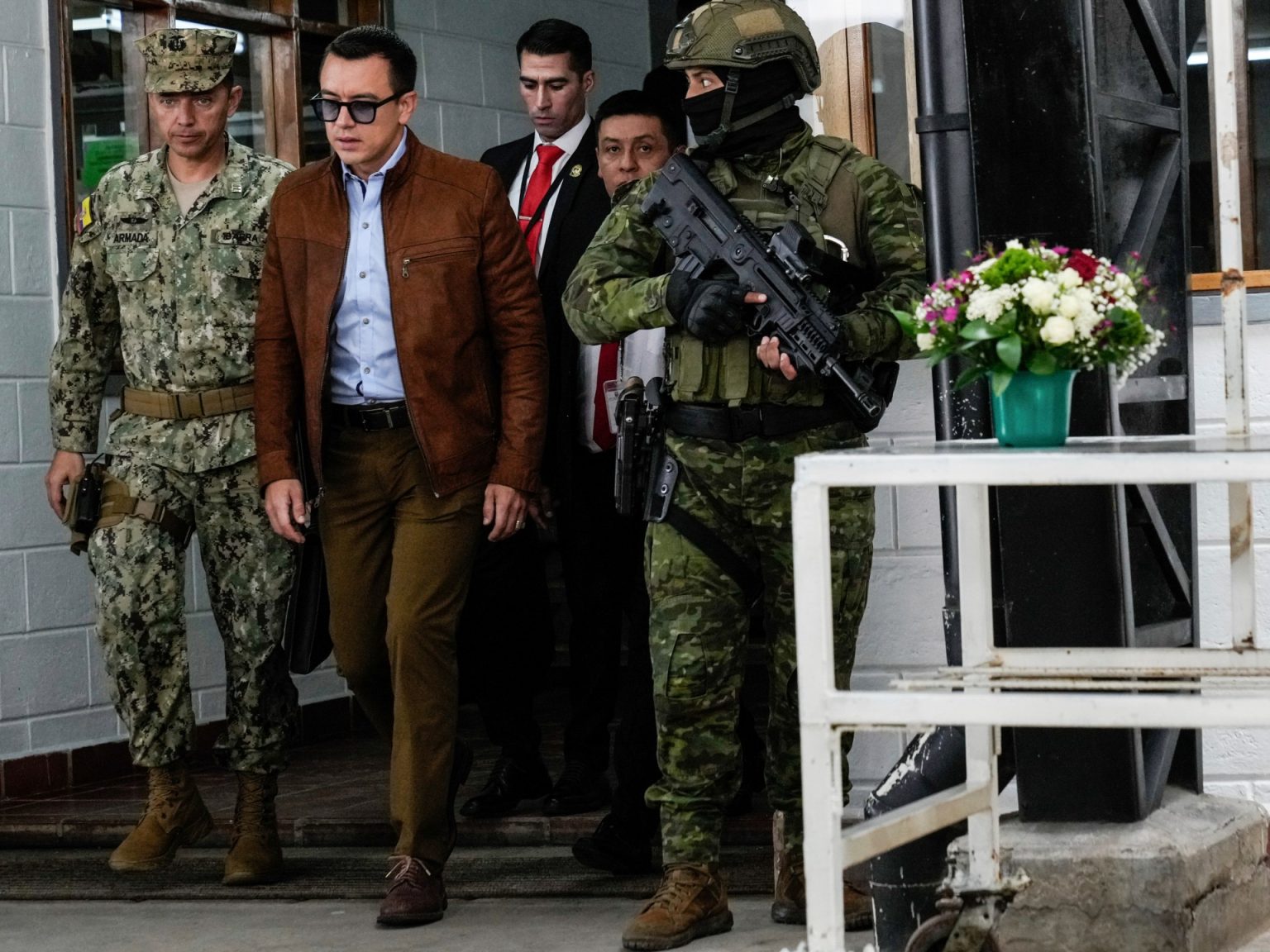Mexico’s Ministry of Foreign Affairs has released footage showing the police raid on its embassy in Quito, Ecuador, denouncing the action as unauthorized and violent. The ministry criticized Ecuador for violating international agreements protecting embassies from law enforcement interference, promising to bring the matter to international courts with the help of friendly countries. The video captured the arrest of former Ecuadorian Vice President Jorge Glas, who had sought refuge in the embassy after being convicted of corruption-related charges. The footage shows Ecuadorian police breaking into the embassy and mistreating Mexican personnel, prompting outrage from Mexico.
The raid further strained the already tense relations between Ecuador and Mexico. In response to the incident, Mexico severed diplomatic ties with Ecuador and recalled its diplomatic staff. Tensions escalated after Mexican President Lopez Obrador commented on Ecuador’s recent elections, leading to Ecuador declaring Mexico’s ambassador as persona non grata. The Mexican Foreign Ministry had offered political asylum to Glas, exacerbating the rift between the two countries. Glas, embroiled in the Odebrecht corruption scandal, faced allegations of accepting bribes and was convicted twice, but maintained his innocence, claiming political persecution.
International law, including the Vienna Convention on Diplomatic Relations, protects embassies as spaces immune from local law enforcement actions, ensuring diplomatic affairs are conducted without interference. The breach of diplomatic inviolability in the Quito embassy raid drew condemnation from international leaders, including the United States, which urged Ecuador to resolve the diplomatic dispute with Mexico. The Organisation of American States scheduled a meeting to address the incident, but Mexican President Obrador expressed frustration with the lukewarm response from the US and Canada, labeling their statements as ambiguous.
Ecuador’s President Daniel Noboa defended his country’s actions, asserting Ecuador’s commitment to peace, justice, and respect for international law. Despite the criticism, Glas returned to prison in Ecuador after a brief hospital stay following his arrest. The incident highlighted the complexities of diplomatic immunity and the need for adherence to international norms and agreements regarding the sanctity of embassies. The repercussions of the Quito embassy raid may have far-reaching consequences for diplomatic relations between Ecuador, Mexico, and other nations involved in the dispute. It remains to be seen how the situation will unfold and whether a resolution can be reached through diplomatic channels.


